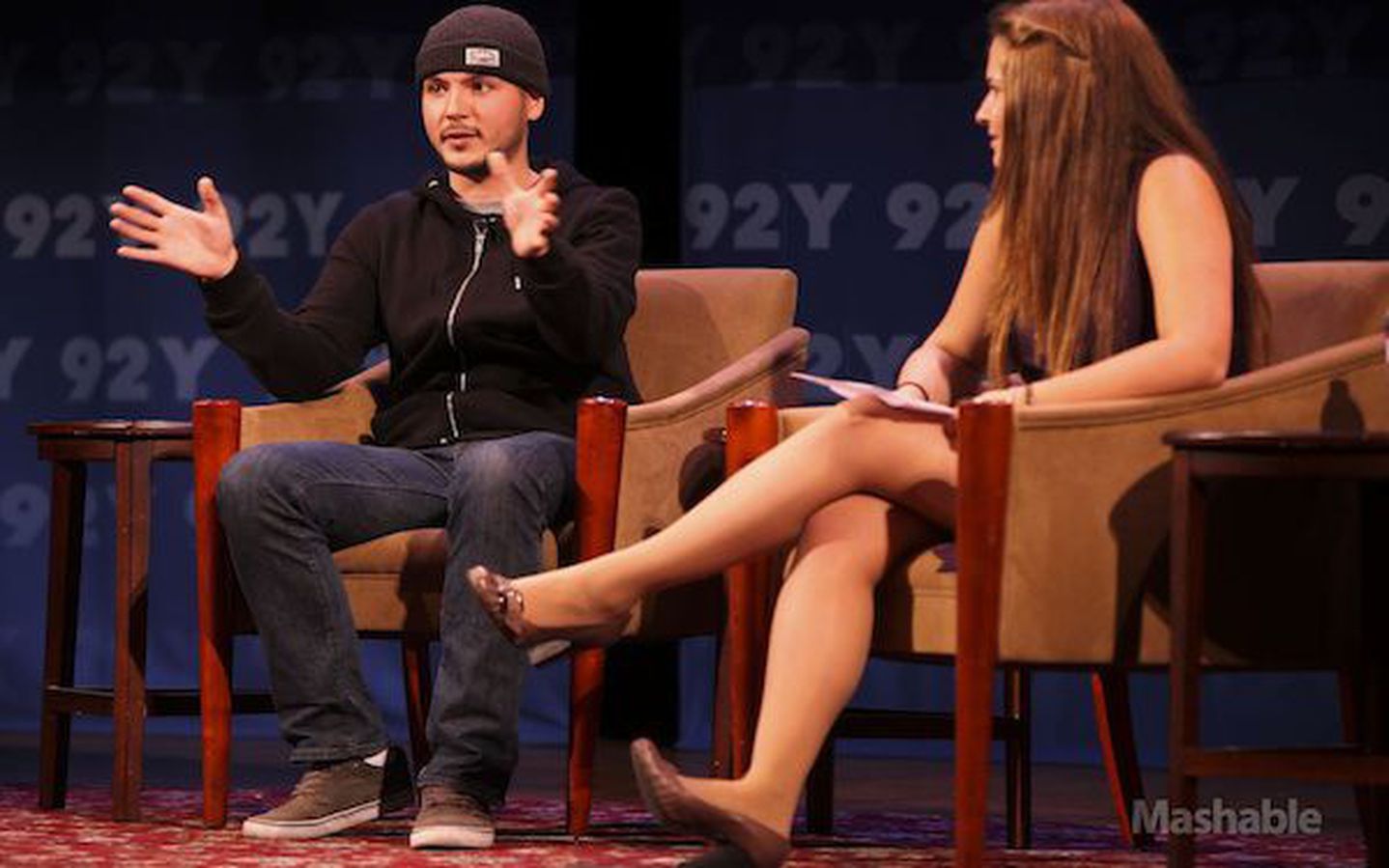Tim Pool, Guerrilla Journalist of the Digital Age

In 2011, Tim Pool didn’t hear about the Occupy Wall Street movement from the news — he discovered it through social networks like YouTube and Facebook. He ended up seeing a video of a police officer dragging a protester by his leg, and Pool noticed that the protester’s hands were bleeding. It was at that moment that Pool decided to see what was going on for himself. He hopped on a bus from Chicago to New York City, and soon he was in the thick of things. Pool started filming and documenting the protests, armed with only his smartphone. Before long, he became one of the foremost independent journalists broadcasting Occupy Wall Street and the events that followed online. “My stance has always sort of been to learn and experience to try and better understand,” he told Mashable‘s Zoe Fox at the 2012 Social Good Summit on Sunday. “I like to get all the facts before I make a decision about what the answer’s going to be.” Because he gathered so much information, he realized that it was safer and more efficient to broadcast everything live with the UStream mobile app. On Nov. 17, 2011, a notable day of protests, he reached an impressive 750,000 viewers. Pool explained that as the protests continued, he often had to get creative with his use of tech as he filmed for long periods of time — sometimes up to 21 hours straight. In addition to his smartphone, he had an external battery that could power a phone for approximately 15 hours. “With just a smartphone, you can send tweets, you can send messages [and] photos, and do a broadcast for a very long amount of time. However, that’s not to say that there aren’t pitfalls. They overheat, they shut down,” he said. Pool and his friend put together a makeshift cooling system using a computer fan plugged into an external battery. They have also used “drones” — remote-controlled quadrocopters — to film events from the air. However, due to the ban on the commercial use of drones, Pool says they are reluctant to use them. “There [are a] million things that need to be built that [are] going to change and further decentralize the ability to share information,” he said. “As time goes on, we’re going to see more and more people with the ability to share information with each other. Bringing more people into the conversation is really what is going to create what I consider social good.” What’s next? Pool says he would like to work on a documentary about Occupy Wall Street, but, surprisingly, he can’t find anyone who wants to go through “terabytes and terabytes” of footage. Read more of Mashable’s coverage of the 2012 Social Good Summit: Day One: Hillary Clinton Opens the Social Good Summit [VIDEO] How the U.S. Chief Technology Officer Is Making Data Awesome Can Mobile Phones Help Fight Pediatric AIDS? How Is Social Media Changing Diplomacy? Peter Gabriel Makes Case For Internet Freedom ITU […]